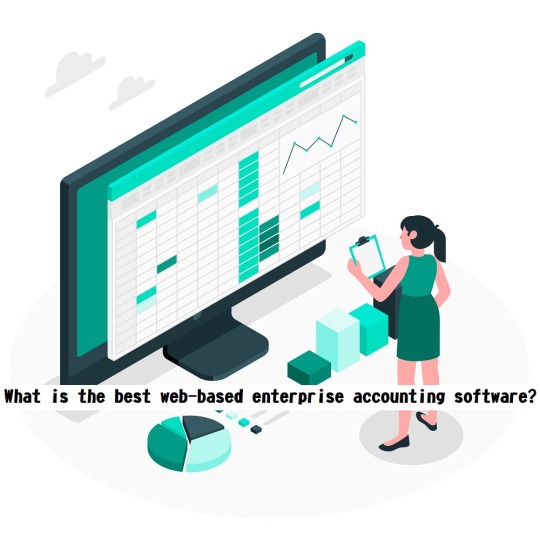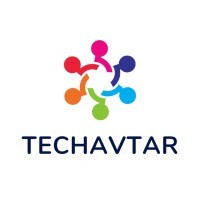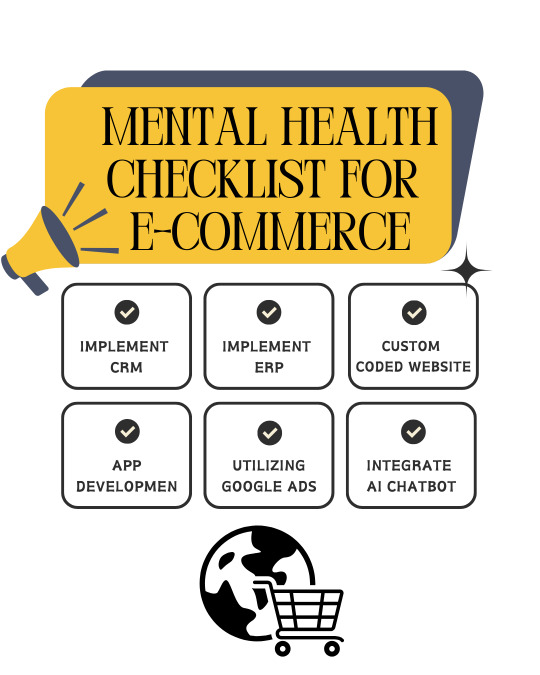#tech cloud erp
Explore tagged Tumblr posts
Text

Acadecraft Partners with Wadhwani Foundation's Government Digital Transformation Initiative to Develop eLearning Courses
#digitaltransformation#technology#innovation#business#digitalmarketing#ai#digital#artificialintelligence#software#machinelearning#automation#businessgrowth#tech#iot#techinnovation#bigdata#cybersecurity#cloud#data#cloudcomputing#smallbusiness#customerexperience#marketing#sap#webdevelopment#erp#blockchain#analytics#ecommerce#datascience
2 notes
·
View notes
Text
The Future of Business Management: ERPNext CRM By Sigzen Technologies
In the ever-evolving landscape of business management, staying ahead of the curve is paramount. One such innovative solution leading the charge is ERPNext CRM, a cloud-based Enterprise Resource Planning system that is reshaping the way organizations approach business automation and workflow optimization. As we delve into the future of business management, let’s explore the game-changing features…

View On WordPress
#Business Automation#Business Software#Cloud ERP#Cloud Solutions#CRM Integration#Data Analytics#ERPNext CRM#Future Of Management#Manufacturing Tech
2 notes
·
View notes
Text
What is the best web-based enterprise accounting software?

In the fast-paced and ever-evolving landscape of business, staying on top of your finances is crucial. As enterprises expand their operations, managing accounts efficiently becomes a daunting task. Thankfully, with the advent of technology, businesses now have access to a plethora of web-based enterprise accounting software options to streamline their financial processes. In this comprehensive guide, we will explore the ins and outs of web-based enterprise accounting software, helping you make an informed decision on the best solution for your business needs.
Understanding Web-Based Enterprise Accounting Software
Web-based enterprise accounting software, often referred to as cloud accounting software, is a digital solution that allows businesses to manage their financial activities online. Unlike traditional accounting systems that rely on on-premise software, web-based accounting tools operate in the cloud, offering users the flexibility to access their financial data from anywhere with an internet connection.
Advantages of Web-Based Enterprise Accounting Software
1. Accessibility
One of the primary advantages of web-based accounting software is accessibility. With data stored securely in the cloud, users can access their financial information anytime, anywhere. This proves especially beneficial for enterprises with multiple locations or remote teams, fostering collaboration and efficiency.
2. Cost Efficiency
Web-based accounting solutions often follow a subscription-based model, eliminating the need for costly upfront investments in software and hardware. This cost-effective approach makes it easier for businesses to scale their accounting infrastructure according to their needs without breaking the bank.
3. Real-Time Updates
In the dynamic world of business, real-time data is invaluable. Web-based accounting software provides instant updates, ensuring that users have access to the most recent financial information. This feature is crucial for making informed decisions and adapting to market changes promptly.
4. Automatic Updates and Maintenance
Gone are the days of manual software updates and maintenance. With web-based accounting solutions, updates are automatic, and maintenance is handled by the service provider. This frees up valuable time for businesses to focus on core operations rather than managing software updates.
Features to Look for in Web-Based Enterprise Accounting Software
1. User-Friendly Interface
A user-friendly interface is essential for ensuring that your team can navigate the software seamlessly. Look for solutions with intuitive dashboards and easy-to-understand features to minimize the learning curve for your staff.
2. Scalability
As your enterprise grows, so do your accounting needs. Choose a web-based accounting solution that can scale with your business, accommodating increased transaction volumes and additional users without compromising performance.
3. Integration Capabilities
Efficient accounting doesn't happen in isolation. Ensure that the web-based accounting software you choose integrates seamlessly with other essential business tools, such as CRM systems, project management software, and e-commerce platforms.
4. Security
The security of your financial data should be a top priority. Opt for web-based accounting software that employs robust encryption protocols and follows industry best practices for data protection. Additionally, check for features such as multi-factor authentication to add an extra layer of security.
Top Contenders in the Web-Based Enterprise Accounting Software Market
1. MargBooks
MargBooks Online is a India's popular online accounting solution known for its user-friendly interface and robust features. It offers a range of plans to suit businesses of all sizes and provides tools for invoicing, expense tracking, and financial reporting.
2. Xero
Xero is another cloud accounting software that caters to small and medium-sized enterprises. With features like bank reconciliation, inventory management, and payroll integration, Xero is a comprehensive solution for businesses looking to streamline their financial processes.
3. NetSuite
NetSuite, owned by Oracle, is a cloud-based ERP (Enterprise Resource Planning) solution that includes robust accounting functionalities. It is suitable for larger enterprises with complex financial needs and offers features such as financial planning, revenue recognition, and multi-currency support.
4. Zoho Books
Zoho Books is part of the Zoho suite of business applications and is designed for small and medium-sized enterprises. It provides features such as automated workflows, project billing, and collaborative client portals, making it a versatile choice for businesses with diverse needs.
Making the Right Choice for Your Business
Choosing the best web-based enterprise accounting software for your business requires careful consideration of your specific needs and objectives. Here are some steps to guide you through the decision-making process:
1. Assess Your Business Requirements
Start by identifying your business's specific accounting requirements. Consider factors such as the number of users, the complexity of your financial transactions, and the need for integration with other business applications.
2. Set a Budget
Determine a realistic budget for your accounting software. While web-based solutions often offer cost savings compared to traditional software, it's essential to choose a solution that aligns with your financial resources.
3. Explore Free Trials
Many web-based accounting software providers offer free trials of their platforms. Take advantage of these trials to explore the features and functionalities of different solutions before making a commitment.
4. Seek Recommendations and Reviews
Consult with other businesses in your industry or network to gather recommendations and insights. Additionally, read reviews from reputable sources to gain a better understanding of the user experiences with different accounting software options.
The Evolution of Web-Based Enterprise Accounting Software
As technology continues to advance, so does the landscape of web-based enterprise accounting software. The evolution of these platforms is driven by the ever-changing needs of businesses and the ongoing developments in cloud technology. Let's delve deeper into the evolving trends shaping the future of web-based accounting solutions.
1. Artificial Intelligence (AI) and Automation
The integration of artificial intelligence and automation is revolutionizing how businesses handle their financial processes. Modern web-based accounting software is incorporating AI algorithms to automate repetitive tasks, such as data entry and invoice categorization. This not only increases efficiency but also minimizes the risk of human error.
2. Enhanced Data Analytics
In the age of big data, the ability to derive meaningful insights from financial data is paramount. Advanced web-based accounting solutions are now equipped with powerful data analytics tools. These tools help businesses analyze trends, forecast future financial scenarios, and make data-driven decisions.
3. Mobile Accessibility
The shift towards mobile accessibility is a notable trend in web-based enterprise accounting software. Businesses are increasingly relying on mobile devices for day-to-day operations, and accounting software providers are responding by offering mobile-friendly applications. This allows users to manage their finances on the go, providing unparalleled flexibility.
4. Integration with E-Commerce Platforms
As e-commerce continues to thrive, businesses are looking for accounting solutions that seamlessly integrate with their online sales platforms. Modern web-based accounting software often includes features tailored for e-commerce, such as automated transaction reconciliation with online sales channels and inventory management.
5. Blockchain Technology
Blockchain technology is making waves in various industries, and accounting is no exception. Some web-based accounting solutions are exploring the integration of blockchain for enhanced security and transparency in financial transactions. This could revolutionize how businesses handle aspects like auditing and transaction verification.
Common Challenges and How to Overcome Them
While web-based enterprise accounting software offers numerous benefits, it's important to be aware of potential challenges and how to overcome them. Here are some common issues businesses may face:
1. Security Concerns
The sensitive nature of financial data raises concerns about security in the cloud. To address this, choose a web-based accounting solution that employs robust encryption protocols and complies with industry security standards. Additionally, educate your team about best practices for secure online behavior.
2. Connectivity Issues
Reliable internet connectivity is crucial for accessing web-based accounting software. In regions with unstable internet connections, businesses may face challenges in real-time collaboration and data accessibility. Consider implementing backup solutions for offline access or explore accounting software with offline capabilities.
3. Customization Needs
Every business has unique accounting requirements. Some businesses may find that certain web-based accounting solutions lack the level of customization they need. In such cases, explore platforms that offer extensive customization options or consider integrating additional specialized accounting tools.
4. Data Ownership and Control
Understanding the terms of service and data ownership is essential when using web-based accounting software. Ensure that the chosen platform allows you to retain control over your financial data and provides mechanisms for data export in case of migration to a different system.
Conclusion: Making the Right Choice for Long-Term Success
In the fast-paced world of business, the right web-based enterprise accounting software can be a game-changer. Whether you're a small startup or a large enterprise, the key is to stay informed about the latest advancements in accounting technology and align your choice with the long-term goals of your business.
As you navigate the vast landscape of web-based accounting solutions, remember that the best choice is the one that seamlessly integrates with your business processes, enhances efficiency, and adapts to the evolving needs of your enterprise. If you have any specific questions or need further guidance on a particular aspect of web-based accounting software, feel free to ask for more information!
Also read- Online billing and accounting software to manage your business
#Web-based accounting#Cloud software#Financial management#Enterprise solutions#accounting#software#billing#online billing software#technology#programming#erp#tech#drawings#illlustration#artwork#art style#sketchy#art#aspec#aromantic asexual#arospec#acespec#aroace#aro#bg3#astarion#shadowheart#gale dekarios#gale of waterdeep#karlach
2 notes
·
View notes
Text
Building Multi-Tenant SaaS Applications with SaaSykit Tenancy in Laravel

#saas#software#b#technology#business#cloud#tech#marketing#startup#sales#automation#digitalmarketing#innovation#entrepreneur#ecommerce#smallbusiness#cloudcomputing#digitaltransformation#erp#iot#ai#data#crm#skullrockersmc#softwareasaservice#entrepreneurship#startups#iaas#digital#bigdata
1 note
·
View note
Text

#Top Technology Services Company in India#Generative AI Development Company#AI Calling Software#AI Software Development Company#Best Chatbot Service Company#AI Calling Software Development#AI Automation Software#Best AI Chat Bot Development Company#AI Software Dev Company#Top Web Development Company in India#Top Software Services Company in India#Best Product Design Company in World#Best Cloud and Devops Company#Best Analytic Solutions Company#Best Blockchain Development Company in India#Best Tech Blogs in 2024#Creating an AI-Based Product#Custom Software Development for Healthcare#NexaCalling Best AI Calling Bot#Best ERP Management System#WhatsApp Bulk Sender#Neighborhue Frontend Vercel
0 notes
Text

Empower your team with CRM training! 🌟 Enhance efficiency, boost productivity, and drive success together. 🚀
#business growth#business tools#crm software#artificial intelligence#tech#crm#ecommerce trends#technology#erp software#crm solution#CRM#crm services#crm management software#crm strategy#zoho crm#netsuite crm#digital transformation#cloud transformation#ecommerce#small business
1 note
·
View note
Text
Comprehensive Islamic Investment Software for Shariah-Compliant Financial Solutions
Discover Azentio's iMAL Islamic Investment Software, designed to provide robust, Shariah-compliant financial solutions. This comprehensive software suite supports Islamic accounting, profit calculation, financing, and treasury management, ensuring strict adherence to AAOIFI standards. Enhance your financial institution's competitiveness and efficiency with our scalable, customizable platform, offering unparalleled flexibility and a panoramic view of all financial positions. Join industry leaders in leveraging Azentio's advanced technology to streamline workflows, automate routine tasks, and achieve accurate profit computation and allocation.
0 notes
Text
Discover the ideal ERP solution tailored for your business needs, streamlining operations and enhancing efficiency for sustained growth and success
#erp solution#business growth#cloud service#it infrastructure management#business technology#tech news
0 notes
Text
The Future of ERP Integrations: How Low-Code and No-Code Platforms Are Changing the Game
Enterprise Resource Planning (ERP) systems’ primary goal has been to enhance business operations through streamlining critical processes such as finance or supply chain management. However, to be honest, the integration of the ERPs with other tools has not always been an easy task. It was really a nightmare for companies to integrate ERPs with the other tools. Time-consuming development cycles, huge IT costs, and some complex coding requirements totally turned ERP integrations into a mess for businesses.
But, here are low-code and no-code platforms like Odoo ERP that are quite the game-changers in ERP integrations. These contemporary remedies have made it much easier, faster, and cheaper to connect ERPs with other business applications. Let me explain to you how they are altering the landscape.

Breaking Down the Buzz: What Are Low-Code and No-Code Platforms?
Low-code platforms enable users to develop applications by designing visually with less code. They include visual design immediate productivity capabilities that promise to fast-track work for a broad spectrum of users in the organization.
No-code platforms take the automation level a little further allowing even average users like IT, ERP, engineers, business analysts, and business owners to create their systems the way they want without having to write a single line of code, and thus they can focus on tasks that matter.
By doing this, businesses just simply change their budget from standard, long, and costly ERP integrations to the cloud.
How Low-Code & No-Code Are Transforming ERP Integrations
Speed Like Never Before - Traditional ERP integrations used to be a time-consuming process and often took weeks, sometimes even months. The use of low-code/no-code tools has become revolutionary and businesses can now develop integrations in just a few days or hours. At the same time, pre-built Connectors and Templates, and automation tools certainly make the life of developers easier.
Reduced IT Dependency - In the past, ERP integrations necessitated the participation of IT teams or even external developers. Over time, the implementation of the low code/no code approach has increasingly led to newcomers getting involved. For instance, the business user can take up the role of the IT team, and as a result, the bottleneck is removed, and the tech teams do more strategic tasks.
Cost Savings Galore - The cost of hiring developers for custom ERP integrations can be hefty. On the other hand, Low-code/no-code solutions indeed offer the benefit of not needing much real developer input. As a result, such systems can be set up and maintained by non-technical employees alone.
Flexibility & Scalability - Companies are getting innovative and growing while software needs are also changing. With the help of low-code/no-code technologies, organizations can accomplish this by simply changing the integration on the go (so to speak). This way, there is no need to reinvent software every time there is a need for change.
Enforced Security & Compliance - No-code/low-code transformational strategies that are inherently secured and compliant mean that ERP integrations will be fulfilled with the required regulations hassle-free for IT teams.
Who’s Leading the Low-Code/No-Code Revolution?
Several players are shaking up the ERP integration landscape. Platforms like Odoo, Zapier, Mendix, OutSystems, and Microsoft Power Automate are leading the charge, making ERP integrations accessible to businesses of all sizes.
Is This the End of Traditional ERP Integrations?
No, it's not. Traditional coding is still very much a necessity for complex and highly customized integrations. However, low-code and no-code platforms are help in most cases to save time, money, and energy.
Odoo: A Top Low-Code ERP
Odoo is one of the best low-code ERP platforms, offering flexibility, automation, and easy customization. With its modular design and drag-and-drop tools, businesses can streamline operations without deep coding expertise.
Final Thoughts: The Future is Here
The days of painful, drawn-out ERP integrations are fading. Low-code and no-code platforms like Odoo are making ERP connectivity easier than ever, allowing businesses to focus on growth rather than technical roadblocks. If your company hasn’t explored these tools yet, now’s the time to jump in!
The future of ERP integrations is fast, flexible, and code-free—are you ready for the Odoo upgrade?
Read more: Click Here
3 notes
·
View notes
Text

Qatar Partners With Scale AI for AI-Powered Digital Transformation of Government Services
#digitaltransformation#technology#innovation#business#digitalmarketing#ai#digital#artificialintelligence#software#machinelearning#automation#businessgrowth#tech#iot#techinnovation#bigdata#cybersecurity#cloud#data#cloudcomputing#smallbusiness#customerexperience#marketing#sap#webdevelopment#erp#blockchain#analytics#ecommerce#datascience
2 notes
·
View notes
Text
Java's Lasting Impact: A Deep Dive into Its Wide Range of Applications
Java programming stands as a towering pillar in the world of software development, known for its versatility, robustness, and extensive range of applications. Since its inception, Java has played a pivotal role in shaping the technology landscape. In this comprehensive guide, we will delve into the multifaceted world of Java programming, examining its wide-ranging applications, discussing its significance, and highlighting how ACTE Technologies can be your guiding light in mastering this dynamic language.

The Versatility of Java Programming:
Java programming is synonymous with adaptability. It's a language that transcends boundaries and finds applications across diverse domains. Here are some of the key areas where Java's versatility shines:
1. Web Development: Java has long been a favorite choice for web developers. Robust and scalable, it powers dynamic web applications, allowing developers to create interactive and feature-rich websites. Java-based web frameworks like Spring and JavaServer Faces (JSF) simplify the development of complex web applications.
2. Mobile App Development: The most widely used mobile operating system in the world, Android, mainly relies on Java for app development. Java's "write once, run anywhere" capability makes it an ideal choice for creating Android applications that run seamlessly on a wide range of devices.
3. Desktop Applications: Java's Swing and JavaFX libraries enable developers to craft cross-platform desktop applications with sophisticated graphical user interfaces (GUIs). This cross-platform compatibility ensures that your applications work on Windows, macOS, and Linux.
4. Enterprise Software: Java's strengths in scalability, security, and performance make it a preferred choice for developing enterprise-level applications. Customer Relationship Management (CRM) systems, Enterprise Resource Planning (ERP) software, and supply chain management solutions often rely on Java to deliver reliability and efficiency.
5. Game Development: Java isn't limited to business applications; it's also a contender in the world of gaming. Game developers use Java, along with libraries like LibGDX, to create both 2D and 3D games. The language's versatility allows game developers to target various platforms.
6. Big Data and Analytics: Java plays a significant role in the big data ecosystem. Popular frameworks like Apache Hadoop and Apache Spark utilize Java for processing and analyzing massive datasets. Its performance capabilities make it a natural fit for data-intensive tasks.
7. Internet of Things (IoT): Java's ability to run on embedded devices positions it well for IoT development. It is used to build applications for smart homes, wearable devices, and industrial automation systems, connecting the physical world to the digital realm.
8. Scientific and Research Applications: In scientific computing and research projects, Java's performance and libraries for data analysis make it a valuable tool. Researchers leverage Java to process and analyze data, simulate complex systems, and conduct experiments.
9. Cloud Computing: Java is a popular choice for building cloud-native applications and microservices. It is compatible with cloud platforms such as AWS, Azure, and Google Cloud, making it integral to cloud computing's growth.

Why Java Programming Matters:
Java programming's enduring significance in the tech industry can be attributed to several compelling reasons:
Platform Independence: Java's "write once, run anywhere" philosophy allows code to be executed on different platforms without modification. This portability enhances its versatility and cost-effectiveness.
Strong Ecosystem: Java boasts a rich ecosystem of libraries, frameworks, and tools that expedite development and provide solutions to a wide range of challenges. Developers can leverage these resources to streamline their projects.
Security: Java places a strong emphasis on security. Features like sandboxing and automatic memory management enhance the language's security profile, making it a reliable choice for building secure applications.
Community Support: Java enjoys the support of a vibrant and dedicated community of developers. This community actively contributes to its growth, ensuring that Java remains relevant, up-to-date, and in line with industry trends.
Job Opportunities: Proficiency in Java programming opens doors to a myriad of job opportunities in software development. It's a skill that is in high demand, making it a valuable asset in the tech job market.
Java programming is a dynamic and versatile language that finds applications in web and mobile development, enterprise software, IoT, big data, cloud computing, and much more. Its enduring relevance and the multitude of opportunities it offers in the tech industry make it a valuable asset in a developer's toolkit.
As you embark on your journey to master Java programming, consider ACTE Technologies as your trusted partner. Their comprehensive training programs, expert guidance, and hands-on experiences will equip you with the skills and knowledge needed to excel in the world of Java development.
Unlock the full potential of Java programming and propel your career to new heights with ACTE Technologies. Whether you're a novice or an experienced developer, there's always more to discover in the world of Java. Start your training journey today and be at the forefront of innovation and technology with Java programming.
8 notes
·
View notes
Text
Is Your Business Ready for Saudi Arabia's Digital Revolution? Discover the Power of the Right ERP System
With the ambitious goals of Vision 2030 driving unprecedented change, businesses are under immense pressure to embrace efficiency, integration, and digital readiness. But how do you navigate this dynamic landscape when outdated, disconnected systems are holding you back?
Imagine trying to manage vast inventories, intricate financial reports, and complex workforce operations all on separate platforms or, worse yet, manual spreadsheets. It's not just inefficient; it's a significant risk that leads to delays, miscommunication, and missed opportunities. In a region where agility and precision are paramount, these legacy system cracks can quickly turn into major roadblocks.
Our comprehensive blog, "The Future of Enterprise Tech: Best ERP System in Saudi Arabia for Seamless Operations," dives deep into this critical challenge. We reveal why Enterprise Resource Planning (ERP) technology is no longer just an option but the cornerstone of future-ready operations, offering more than just automation – it creates a connected, real-time environment that empowers your business with clarity, speed, and confidence.
Unlock Seamless Operations and Strategic Growth
This isn't just about understanding what ERP is; it's about discovering what defines the best ERP software in Saudi Arabia for your specific needs. Our detailed guide breaks down the essential characteristics of a top-tier system, including:
Customizable and Modular Architecture: Tailoring solutions to fit your unique business processes.
Cloud-Native Platforms: Enabling real-time collaboration and remote access, crucial for modern business models.
Localization for Saudi Compliance: Ensuring seamless adherence to regulations like ZATCA e-invoicing.
Smart Reporting and Analytics: Gaining predictive insights for informed decision-making.
Advanced Automation & Enterprise-Grade Security: Boosting efficiency while safeguarding your vital data.
We'll help you navigate the crucial choices in the Saudi ERP marketplace, guiding you through the most important factors to weigh when selecting a platform. From scalability and flexibility to integration capabilities and vendor support, our blog provides the insights you need to make a strategic, long-term decision.
Leading the Charge Towards Vision 2030
The right ERP system can fundamentally reshape your enterprise, enabling you to reduce costs, remain agile, and scale confidently. It's about finding a strategic partner who understands the local industry nuances and can provide reliable support throughout the entire implementation lifecycle.
Our blog "The Future of Enterprise Tech: Best ERP System in Saudi Arabia for Seamless Operations, also introduces you to Olivo ERP, a robust, cloud-based platform specifically designed for the Saudi market. Discover how Olivo stands out with its powerful suite of tools across finance, HR, procurement, and more, offering seamless integration, next-gen intelligence, and crucial ZATCA-compliant e-invoicing.
Don't let outdated systems hinder your progress. Embrace the digital transformation necessary to thrive in Saudi Arabia's competitive landscape.
#ERPSaudiArabia#ERPSoftwareKSA#EnterpriseTech#BusinessSolutions#CloudERP#SaudiBusiness#SaudiArabia#JeddahBusiness#RiyadhBusiness#SmartAutomation#OlivoERP#FutureOfBusiness
0 notes
Text
How ERP Software Transforms Homeopathy Clinics in 2025
As homeopathy clinics evolve in response to patient expectations and regulatory standards, the role of technology is more vital than ever. In 2025, ERP software is no longer a luxury—it’s a strategic necessity for homeopathy clinics looking to grow, automate, and deliver better care.
Let’s explore how Homeopathy ERP software is transforming clinics across India and globally in 2025.

🔁 From Manual to Digital: A Shift in Practice
Traditionally, many homeopathy clinics managed:
Stock in registers
Prescriptions on paper
Billing manually
Patient records in folders
In 2025, leading homeopathy clinics have adopted cloud-based ERP systems that automate every step—from appointment booking to patient follow-up, thereby improving both efficiency and professionalism.
🚀 1. Complete Clinic Automation
Modern Homeo ERP software now automates:
Billing & invoicing
Patient history tracking
Stock updates
Expiry alerts
Payment follow-ups
Doctors and staff can concentrate more on patient care as a result of the reduced paperwork, fewer mistakes, and quicker service.
📦 2. Advanced Inventory Control with Potency Management
Homeopathy clinics deal with unique challenges:
Potency-based medicines (e.g., 30C, 200C, 1M)
Dilution tracking
Multiple combinations
In 2025, ERP software will track stock by potency, batch, and expiry—preventing overstocking, understocking, or using expired remedies.
👨⚕️ 3. Smarter Patient Experience
Patients expect faster service, digital records, and follow-ups. ERP helps clinics:
Schedule appointments online
Retrieve previous prescriptions instantly.
Send SMS/email reminders.
Track chronic cases effectively.
The result? Improved trust and repeat visits.
📊 4. Real-Time Insights for Better Decision-Making
The latest Homeo ERP systems include extensive analytics and dashboards that demonstrate the following:
Most-prescribed medicines
Monthly revenue trends
Patient visit frequency
Inventory usage rates
These reports help clinic owners make smarter, data-driven decisions.
🌍 5. Multi-Location Growth Made Simple
In 2025, many homeopathy practices are expanding. ERP software allows:
Centralized control across multiple branches
Role-based access for doctors, reception, and stock managers
Cloud backup for anytime-anywhere access
Whether you’re operating in Kerala, across India, or even globally, ERP supports scalable growth.
🔐 6. Data Security & Compliance
As data privacy regulations become more stringent, ERP software guarantees:
Encrypted patient records
Automated backups
Secure logins
Audit trails for legal safety
No more worries about lost files or manual errors.
💼 7. Business + Medical Efficiency Combined
ERP software in 2025 is not just about clinical records—it also improves:
Revenue tracking
Profit margin analysis
Discount & loyalty management
Vendor/supplier integration
It brings business intelligence into healthcare—something traditional systems lack.
📍 Who’s Leading the Change?
Companies like Hiworth Solutions are at the forefront, offering homeopathy ERP software in Kerala and India that is:
Fully customizable
Potency-aware
Easy for non-tech-savvy staff
Affordable for small to mid-sized clinics
🎯 Final Thoughts: Adapt Now or Fall Behind
2025 is not about surviving—it’s about thriving through smart systems. If you’re running a homeopathy clinic, investing in ERP software is the fastest way to:
Save time
Improve service
Grow with confidence
✅ Ready to Upgrade?
At Hiworth Solutions, we specialize in Homeopathy ERP software that’s built for your real-world clinic challenges.
👉 Book your free demo today and experience the future of homeo clinic management.
#homeo erp software kerala#homeo erp software trivandrum#hospital management software trivandrum#erp#erp software#information technology#software
0 notes
Text

As a top technology service provider, Tech Avtar specializes in AI Product Development, ensuring excellence and affordability. Our agile methodologies guarantee quick turnaround times without compromising quality. Visit our website for more details or contact us at +91-92341-29799.
#Top Technology Services Company in India#Generative AI Development Company#AI Calling Software#AI Software Development Company#Best Chatbot Service Company#AI Calling Software Development#AI Automation Software#Best AI Chat Bot Development Company#AI Software Dev Company#Top Web Development Company in India#Top Software Services Company in India#Best Product Design Company in World#Best Cloud and Devops Company#Best Analytic Solutions Company#Best Blockchain Development Company in India#Best Tech Blogs in 2024#Creating an AI-Based Product#Custom Software Development for Healthcare#Best ERP Management System#WhatsApp Bulk Sender#Neighborhue Frontend Vercel
0 notes
Text

Feeling overwhelmed with managing your online store? Integrate AI-powered chatbots and software like ERP and CRM to lighten your load! Enjoy more time, less stress, and a happier, healthier you. 🌟💼
#technology#business tools#crm#crm software#ecommerce trends#business growth#tech#artificial intelligence#chatbot#web development#web design#seo services#digital marketing#erp software#cloud erp#techsolutions#techtrends#digitaltransformation#erp solution#services
1 note
·
View note